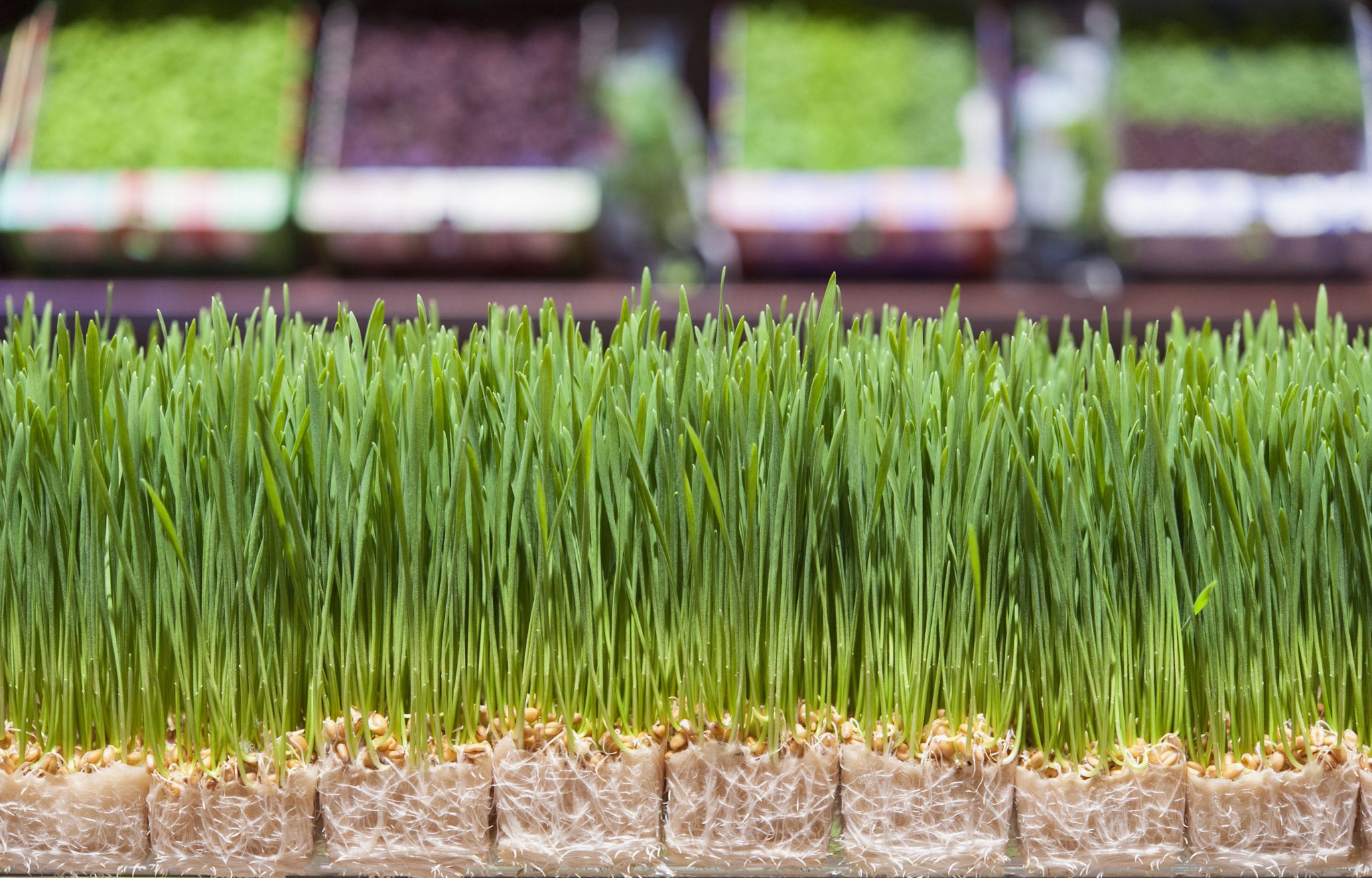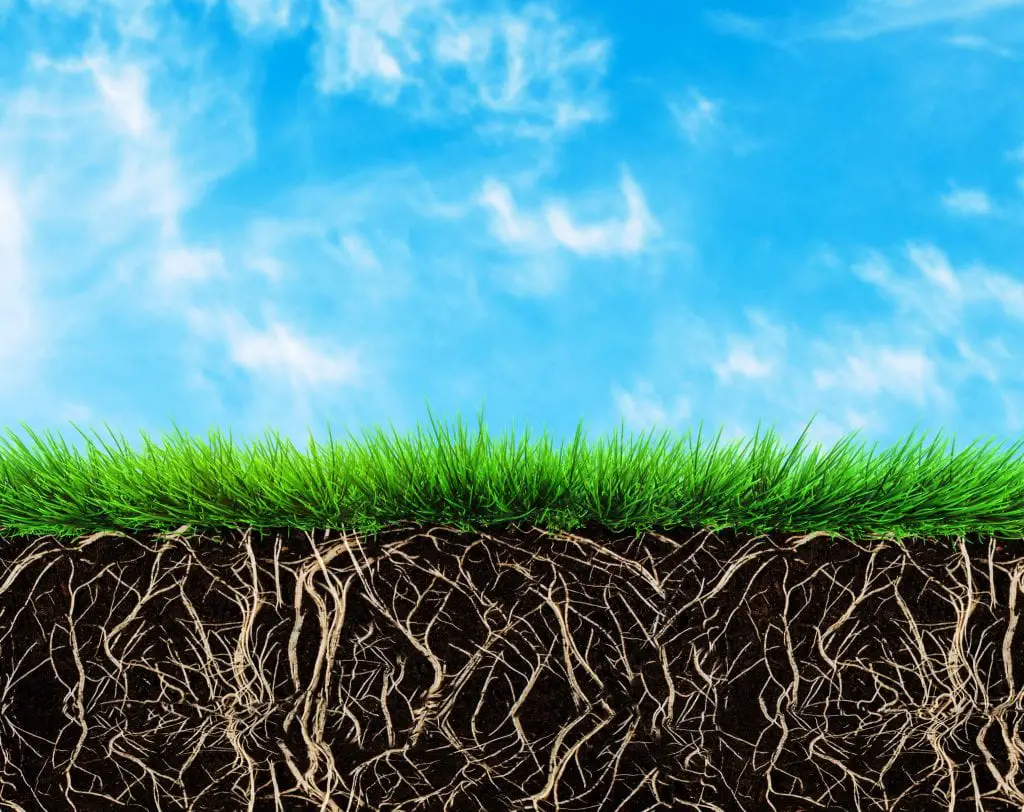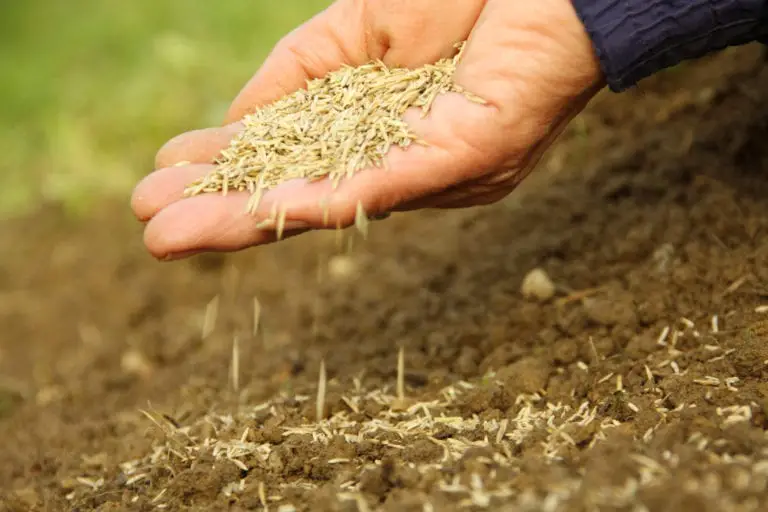Watering Different Lawn Types
How long to water lawn varieties and how to care for the different types will depend on several factors, including the season, the zone you are in and most importantly the type of grass you are growing. Different lawn types will have different watering and overall care needs, so it is important to pay attention to the type of lawn that is growing. Once you know how much to water a specific lawn type, it is easy to set a schedule that will give thirsty lawns the perfect amount of water all season long.
Warm-Season Grasses Warm-season grasses such as zoysia and bermuda grass grow best when the air temperature is above 80 degrees. They slow down when daytime temperatures start to drop, but they still need moisture to remain healthy. Continue to water them as long as the grass is growing and needs regular mowing. Fall is not the time to fertilize warm-season lawns. Wait until spring, when the active growing season begins.
Cool Season Grasses Cool-season grasses, such as bluegrass, fescue and rye, are actively growing in the fall, recovering from summer dormancy. Cool fall temperatures keep evaporation rates low, but these grasses still need an inch to an inch and a half of water every week until frost ends the growing season. Cool-season grasses are also typically fertilized in the fall, and watering after fertilizing is important to wash the fertilizer off the blades of grass and down into the soil.
How Often To Fertilize Lawn
Over-fertilizing is a thing. If once a year is right for your lawn, stick with that and dont get carried away. Fertilizer can be a valuable tool to keep a lawn healthy, dense and looking great, but it can also create environmental concerns if not used responsibly. Follow the label instructions on your fertilizer as each product has unique specifications and needs.
Lawn Fertilizer For Denver
Are you seeking for the lawn fertilizer for denver on the market? If you answered yes, you are lucky because you have arrived at the greatest possible spot. We are here to save you time and stress from reading endless reviews.
It is fairly typical to be perplexed regarding which lawn fertilizer for denver to buy. This difficulty occurs because to the wide variety of lawn fertilizer for denver available on the market. To help you choose the best lawn fertilizer for denver available on the market, we have produced a detailed guide.
Recommended Reading: How To Kill Brome Grass In Lawn
When To Fertilize Cool
The best time to fertilize cool-season grasses is in the spring and fall when theyre growing most vibrantly.
Spring: apply fertilizer after the last frost when the grass thrives again, between April to June, depending on your location.
Fall: apply fertilizer just before the trees drop their leaves, from late August to October, depending on your location. Fertilize well before the first frost date, as you dont want to encourage your grass to grow in time for frost to kill it.
If youre using organic fertilizer like compost and only want to fertilize once, fertilize in the fall. The extra compost will help shelter your grass and the soil over the winter.
It also gives the beneficial microorganisms in your grass time over the winter to break down the organic matter into nutrients. This gives your lawn a head-start come spring.
If youre fertilizing twice a year, apply a light amount of fertilizer in the spring and a heavier fall.
Dont fertilize in the summer, especially when the grass has gone brown. The grass is fine. Feeding synthetic fertilizer will not make it turn green. Instead, force-feeding it nitrogen when its dormant is just going to stress it out and could even kill your lawn.
Recommended Reading: How To Start Your Own Lawn Business
Tips To Apply Weed & Feed Properly

If you want to learn when to use weed and feed, keep in mind several important tips:
- Measure your lawn: Its good to know which part of the yard you want to fertilize with weed n feed product. This fact is also useful when you calculate the quantity of fertilizer that is allowed to spread.
- Wait 2-4 days after the mowing: The soil needs time to incorporate the grass cutting. Even if you collect it mechanically, you will always leave something behind. After a little break, the soil will be capable to absorb it again.
- Follow the precise proportions: As we mentioned before be careful about how much weed and feed you use. Also, make sure not to apply too much of it can use. If youre having some trouble, we would recommend an electric spreader for applying the fertilizer as an alternative its more precise and will ensure that you dont use too much of a product.
- Avoid watering for two days after appliance: You need to have a proper density of weeding and feeding granules. Keep in mind that water can alter the density. Hence you should water the lawn for two days after you applied the product. Of course, you should also avoid hot summer days for this kind of fertilization.
Don’t Miss: How To Get Rid Of Lawn Fungus Naturally
Lawn Fertilizing Tips For Colorado Homeowners
Understanding Colorados unique climate and the challenges is essential when developing a lawn care strategy. But no matter whether youre living in Denver or Durango, a healthy lawn begins with knowing when and how to fertilize based on your local climate and growing conditions. Our lawn care experts can help you dial in your fertilization program.
If youre living in Denver and want to take your lawn care to the next level, we are here to help with year round lawn care services that are guaranteed to have your grass looking healthy and vibrant.
Do You Have A Crabgrass Invasion
If you do, a crabgrass preventer in combination with feed may be a good idea. But if not, only get the feed. Note, if you did not spot any crabgrass last year, chances are you do not have a problem. If you notice the weed in March-April, it is probably orchard grass, quack grass, or smooth brome that are not affected by crabgrass preventer.
The crabgrass grows in early or mid-spring in most of Denver and dies over winter. When the soil warms up during summer, it grows from the seeds. Apply crabgrass preventer along with the feed if you are sure you have the weed on your lawn.
Read Also: When To Apply Fertilizer To Your Lawn
When To Put Down Weed And Feed
Of course, the best time for weed and feed depends on the circumstances, like the climate, soil type e.t.c. So theres really no universal answer.
There are different reasons for having more than one answer to the question of when to apply weed and feed. The climate and weather play the most important part, because, for example, you will apply weed and feed for southern lawns in a different period than for northern lawns. Thus to know when to properly apply weed n seed, you need to check your climate zone.
Considering your location, the soil, and weather, the best time to weed and feed should be when the temperature is around 12°C and more. So generally the best time for applying weed and feed in early spring or early autumn. But again, it all depends on whether you live in a colder or warmer region. Finally, dont forget that you can only apply weed n feed twice a year.
Other Considerations When Choosing A Fertilizer For Your Lawn
Other than the nutrients, fertilizers may combine with other chemicals such as weed killers, crabgrass, and insect or grub control. Chemicals should be applied sparingly or as needed as too much of a good thing is poisonous. For instance, nitrogen can leach to groundwater, especially in sandy soils such as those found east of Denver.
Consider the following before buying combined fertilizer with extra functions.
You May Like: How Should I Water My Lawn
What Is Chemical Or Non
Chemical fertilizer also known as non organic fertilizer contains chemical elements that improve growth and productivity of lawns and plants. Natural fertilizers typically contain manure and composts. Modern chemical fertilizers include one or more of the following: nitrogen, phosphorus and potassium which are critical to the survival of plants. Secondary ingredients typically contain sulfur, magnesium and calcium.
The Purpose Of Lawn Aeration
In lawn aeration, you perforate your lawn with many small holes, breaking up heavily compacted soil so water, nutrients and oxygen can better reach the roots. This improves grasss drought tolerance, so it can handle harsh weather better. It also improves drainage and encourages faster, better growth. The roots will grow deeper, letting them reach nutrients and water further down in the soil.
Read Also: How Often Should I Reseed My Lawn
Choosing The Right Fertilizer
Synthetic fertilizers come in slow- and fast-release formulas. In addition to the essential nutrients of nitrogen, potassium and phosphate, they may also contain calcium, magnesium, sulfur and other ingredients.
While synthetic fertilizers are a good choice for spring and fall use, you should avoid them during the summer. This is because they typically have a very high nutrient content and are likely to burn the grass.
Organic fertilizers are made from fish meal, compost, manure and other natural ingredients. It has a lower nutrient content, which makes it gentler and ideal for summer use. Organic fertilizer tends to break down slowly too, so it will continue feeding the grass for months after application.
When Should You Aerate Your Lawn

Anyone who owns a home knows a great lawn doesnt happen by accident. It takes a lot of planning and maintenance to get lush green grass thats the envy of all your neighbors. Regular watering, mowing and fertilizing are important, but they wont do anything for you if your soil doesnt provide the right growing conditions.
Over time, soil can become so compacted that it doesnt let nutrients reach the roots, where they can do the most good. Lawn aeration is a simple process that solves this problem. To get the best results, though, it is important to do it at the proper time otherwise, you may be doing more harm than good.
Recommended Reading: Does Lowes Take Old Lawn Mowers
When Do I Apply Grass Fertilizer To The Lawn
Timing is everything when it comes to lawn fertilization. We recommend that you fertilize the lawn in early spring. February to April is the best time to apply fertilizers to the lawn. The soil temperature is ambient, and the lawn plants are beginning to grow.
Feed your cool-season grasses in late summer or early fall, six weeks before the winter frost sets in. Two to three maintenance applications are enough, along with careful watering. You can also apply fertilizer to warm-season grass in early summer to boost their growth and health.
At Ironwood Earthcare, we strongly recommend that you set a regular lawn fertilization schedule to promote consistent growth in your yard. We offer our Denver, Aurora, and Centennial, CO customers a six cycle feeding schedule for healthier and greener grass. To find out more about our lawn fertilizer service, call us at 366-3020.
Fertilizing Help From Experts
You now know when and how to fertilize your lawn, but if you want to hire a dedicated team of professionals to help out, contact us. Whether you are responsible for a single-family home, a townhouse complex or a soccer field, Lawn Troopers are uniformed and fully insured and equipped with all the necessary tools to fertilize a range of grassy landscapes. Contact us to request a quote.
What Others Are Saying
Recommended Reading: How Much Peat Moss For Lawn
When To Fertilize Timing Is Everything
No matter where youre living and what type of grass is growing in your backyard, a good fertilization strategy relies on providing adequate fertilizer at the right time. The most important element is nitrogen and timing is essential.
Wondering when to fertilize your lawn in Colorado? According to the Colorado State University Ag Extension office, homeowners should look to make their first nitrogen-based fertilizer application as early as March. Of course, that may not be possible in areas of the state where snow and freezing temperatures linger, but in parts of East Denver and other dryer and warmer communities like Durango thats probably about right, depending on the weather. For high maintenance species like bluegrass and ryegrass, youll likely need to go a little heavier on that initial application with the recommendation of roughly 1.5 pounds of nitrogen per 1,000 square feet of turf.
A less demanding turf grass like fescue requires only about half as much fertilizer for the same area.
Spring Lawn Care Tips
Want to get notified when new Good Growing posts are available?
You May Like: How To Fix Puddles In Lawn
Recommended Reading: How Often Should You Aerate Your Lawn
Receive Family Friendly Lawn Care Services In Denver
Serving Denver residential homes since 1972, we set ourselves apart from other lawn care companies in the area with our organic, child and pet friendly, fertilization products. As a family owned and operated business, we take pride in protecting your loved ones with top of the line residential fertilizer services. Our natural, family friendly lawn care products will help your Denver yard thrive, while also protecting your loved ones. Are you ready for family friendly fertilizer services? Reach out to the Lawn Doctor for help!
Tips For A Healthy Lawn In Denver
Don’t Miss: How To Quote Lawn Care Jobs
Soil & Root Boosting Lawn Care Services In Denver
When it comes to improving the overall strength of your Denver lawn, it is important to apply soil and root boosting home lawn fertilization as it allows your lawn to thrive. With our thorough techniques, we can address the most basic deficits in your lawn to make it stronger and last longer. Reach out to Lawn Doctor for all your soil and root boosting needs and allow us to help your residential lawn be the best it can be!
Cheat Sheet: Fall Lawn Care

Temperatures have started falling across Colorado and autumn is in the air! But yard work doesnt stop on the first day of fall. By taking careful steps this time of year, you can help your lawn stay healthy through the fall and winter for a stunning revival next spring.
Raymond Poole offers 7 tips and tricks in this guide to fall lawn care.
Read Also: Which Battery Operated Lawn Mower Is The Best
Your Customized Lawn Fertilization Denver Aurora And Centennial Co
Ironwood Earthcare offers professional and customized lawn fertilization in Denver, Aurora, and Centennial, CO. With a regular feeding cycle service, you can enjoy long seasons of lush green grass. Let Ironwood Earthcares expert team of lawn health technicians promote and maintain a healthy, beautiful lawn for your home.
Hire A Professional Lawn Care Services
If you are not sure how to go about fertilizing your lawn or simply do not have the time, hiring a professional lawn care service could really save you. Lush Lawn has been serving the Southeast Michigan area for nearly 15 years. Our technicians have the equipment and experience to take care of all of your lawn application needs. We will work around your schedule to ensure your grass is at its healthiest and your yard is at its most beautiful. Contact us today for a free estimate on services!
Topics:
You May Like: How Much Peat Moss For Lawn
Don’t Miss: Does Lowes Sell Craftsman Lawn Mower Parts
Denver Lawn Aeration Service
If you notice stunted growth or grass, lawn aeration may be the best solution. It helps keep thatch buildup to a minimum. This will help break up sticky clay, foster a healthy environment for important micro-organisms, oxygenate the environment better and allow water to permeate through your grass easier.